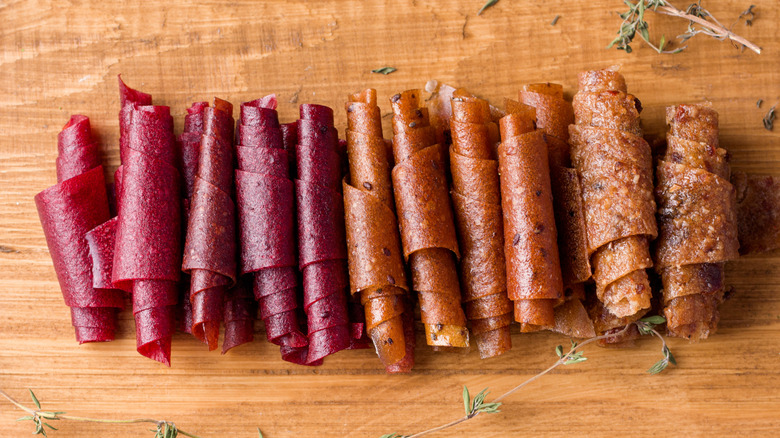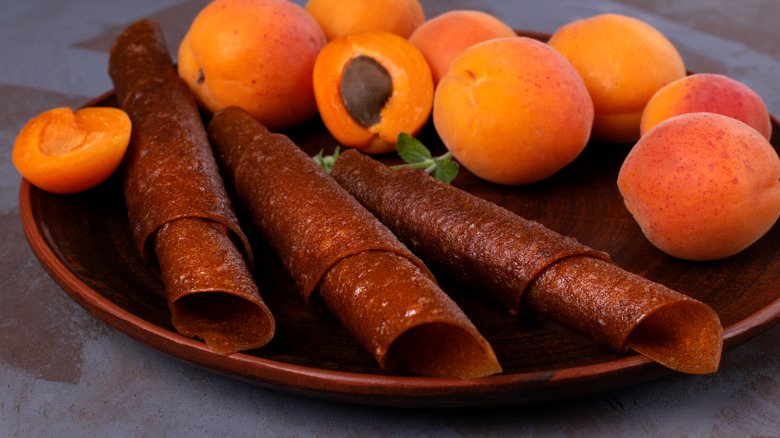The Cultural Delicacy Fruit Roll-Up Snacks Were Based On
For snackers of a certain age, there's a great deal of nostalgia tied to Fruit Roll-Ups. Memories of snacking on and trading the sweet treat during school lunch; of balling the whole thing up before eating; of unrolling the roll-up and tearing out the shapes and characters from the fruity canvas. The snack continues to be a hit with Americans, regardless of age, many of whom may be unaware that this popular treat is based on a cultural delicacy from the Middle East.
While elementary and middle schoolers may have fond memories of the chewy snack when it was introduced in the 1980s, Fruit Roll-Ups' history goes back further. Long before Fruit Roll-Ups were used for food hacks, its origins began with a snack called amardeen, a fruit leather made from apricots that sprang from the mind of George Shalhoub in a small New York City Syrian community.
Around the turn of the 20th century, Shalhoub owned a sweets shop and one of his most curious offerings was amardeen, a concoction that was simply sheets of sticky apricot paste imported from Syria. Known locally as shoe leather for its texture, children with pocket money could buy a piece — cut from a sheet by a clerk — for just a few cents and enjoy the fruity treat that could be considered a chewier forerunner of a jawbreaker.
Paving the way for Fruit Roll-Ups
Unfortunately, the Syrian neighborhood where Shalhoub's shop stood was razed in the 1940s and Shalhoub's candy shop relocated to Brooklyn. In the 1950s, Shalhoub's grandson Louis got the idea to make and sell individual portions of amardeen. His small batch system of flavoring, cutting, rolling, and drying individual rolls eventually resulted in Joray fruit rolls — the first candy of their kind — being introduced in 1960
The Shalhoub family's methods of mass production and flavoring paved the way for the later introduction of Fruit Roll-Ups. Joray eventually got lost in the shuffle when bigger brands, which owned some of the materials Joray used in its production, decided to make their own versions of the treat. Sunkist was enlisted with making the rolls and was later surpassed by General Mills' Fruit Roll-Ups. Joray shifted gears and found success again by focusing on kosher snacks.
Intentional or not, Fruit Roll-Ups included amardeen's original flavor — apricot — in its debut lineup of flavors, which also included apple, strawberry, and cherry. Since the treat's introduction, snackers have been able to enjoy dozens of flavors including ones inspired by Jolly Ranchers, sour Roll-Ups, classic flavors, and plenty of mash-ups — not to mention creative home chefs who have made their own homemade versions of the snack.

